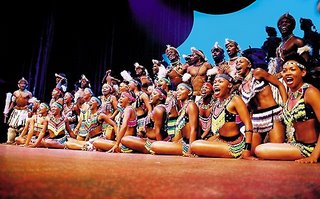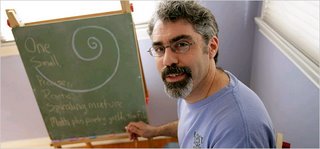IT'S FUNNY HOW THE subconscious operates. Often, I find it speaking to me through other people.
Recently, Dr. L_dley asked me to judge a student poetry contest at Cl_yton State University for
Cygn_t, their campus literary magazine. After the magazine editors screened the entries, I received a stack of 20 or so poems to select 5 honorable mentions, and 1st, 2nd, and 3rd prize winners for $250, $125, and $75.
Again, this was not a slam, but a written poetry contest.
When I judged this same contest last year, I felt there was an obvious first place winner. But this year, it was a bit more challenging. The quality of the entries was much more even. I read; I re-read; I re-re-read, and after much deliberation, I narrowed the field down to three.
One entry had strong imagery ("in her jolted zombie shuffle") and a good sense of music, but it lacked in gravitas and was a little longer than needed. Another entry made brilliant use of puns and had strong wit, but it struggled with thematic clarity. And the last of the three had a strong sense of voice, thematic clarity, a good ear for music, but wove in and out of didacticism - it was clearly a
dum, dum, dum, dummmmmmm....
'spoken word' piece.
The step child of academic poetry, the spoken word piece rarely ever sees its way into print. But here was one fairly well-written alongside two other also fairly well-written 'page' pieces. Giving it a place at all might be considered controversial.
So, which poem would I choose for first place?
I should add that, in addition to the prize money, the top three finishers and the honorable mention would read their pieces during an award ceremony, which happened this past Wednesday. This complicated matters.
Why complicated?, you may ask. Well, this was a written poetry contest; so I was to make my assessment based on the writing alone. But the audience's first exposure to the winning pieces would be at the award show in an
oral reading. The audience wouldn't have the benefit of seeing the text in print. So, if one of the poets happened to be a poor reader, it might - to the audience - reflect poorly on my judging.
I can hear you saying
F*ck the audience!
But that wouldn't be me, now would it?
Page-oriented poets can have a tendency to be less performance-savvy. In some cases they may actually sabotage their work with less-than-engaging presentation skills.
In all likelihood, the spoken word performer would be the best presenter of his work and would completely outshine the other presenters. As the winners would be reading in order from 3rd place to 2nd place to 1st place, if I gave the performance-savvy spoken word poet a lower place, the audience, experiencing the poems orally, might perceive the award presentation as anticlimactic, unfair, and
whatthef*ck? - especially if the other two poets wound up being poor presenters, even if those poets' poems might have been written better.
So, what did I do?
I f*cked the audience. I gave 3rd place to the spoken word poet.
And what happened? Exactly what I feared.
Keeping in mind that this was a written contest, I prefaced the award to the spoken word artist, _a__ _n___y by pointing out his piece's sound composition, the heavy use of internal rhyme, contextualizing it in the tradition of 19th century poet
Gerard Manley Hopkins' "sprung rhythm." I'd felt the need to justify giving him an award, but the justification was unnecessary.
The poet, before reading his piece, justified again, "I know this piece is a lot different that the other pieces you're used to seeing in the campus literary magazine..."
And then, of course, he ripped it.
Uh oh, I thought.
Then Now, whose award was I worried about justifying again?
Then, the 2nd place entrant, __ll, who I, in his introduction, praised for his sense of wit - got up and said sarcastically, "Thanks for making me follow him."
...
Now, I'm not going to rag __ll. He doesn't need ragging. He rags himself. Clearly, he hates public speaking. He rattled off his piece, mumbling - completely destroying the ability for the audience to appreciate his puns; completely sabotaging his strength - his use of language.
I wish that I had an opportunity to coach him - to tell him to slow down, to enunciate, to pause, to breathe, to let the poem come to life. I'm not asking for him to be Laurence Olivier, just for him to present in a way that he doesn't stand in the way of his own work. Poor, __ll. He's such a promising writer. I felt bad for him.
Fortunately, the first place entrant was a good reader. She read at a good pace, made eye contact, paused for the audience to laugh. In other words, she let her poem breathe. I felt redeemed about my choice.
But then it happened. The spoken word artist brought an entourage.
No, not like you might think. Not a performance posse, not a slam consortium: It was his wife and children.
_a__ _n___y, himself, was very humble and almost apologetic about receiving 3rd place. He shouldn't have felt that way, but he recognized the tension between performance and print.
His loving wife had a different idea.
Not even 30 seconds after Dr. L_dley made the closing remarks, _a__ _n___y's wife marched - and I do mean marched - over to him.
In typical sistagurl fashion she looked him dead in the face and said, "You know I'm mad, right?"
"What?" Dr. L_dley said, gathering his papers.
"You know I'm mad."
"About what?"
"You know I'm mad," she repeated. "Now, I just sat here and listened to all these poems. I just sat and listened to all these people read, and... you know that ain't right."
"I'm not sure what you're talking about," Dr. L_dley said.
And he probably didn't. But I knew what she was talking about - because I live it. Somewhere along the way, I have become a part of the machine. I am becoming a part of the Academy.
_a__ _n___y's wife knew something which I, too, knew. A poem is not just words on a page. It lives. It breathes. It is a spirit.
Am I helping to carry it? Or am I helping it to die?

 A THUNDER AND LIGHTNING SHOW singing among the clouds, the South African tour-de-force, Umoja, is now traveling the U.S. With Mandela-like poise, Bhekizitha Penuel Ndaba, narrates this unforgettable two-hour musical journey. With unswerving verve, the colorful 30+ member cast transports the audience through pre-colonial, apartheid, and post-apartheid South Africa.
A THUNDER AND LIGHTNING SHOW singing among the clouds, the South African tour-de-force, Umoja, is now traveling the U.S. With Mandela-like poise, Bhekizitha Penuel Ndaba, narrates this unforgettable two-hour musical journey. With unswerving verve, the colorful 30+ member cast transports the audience through pre-colonial, apartheid, and post-apartheid South Africa.